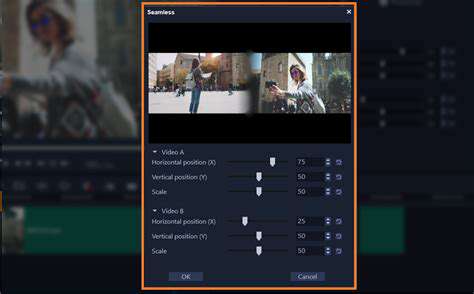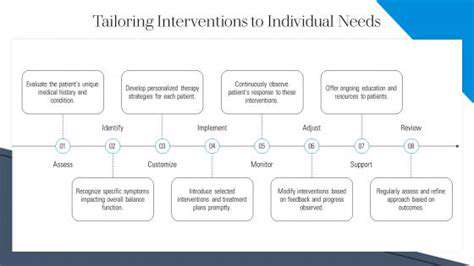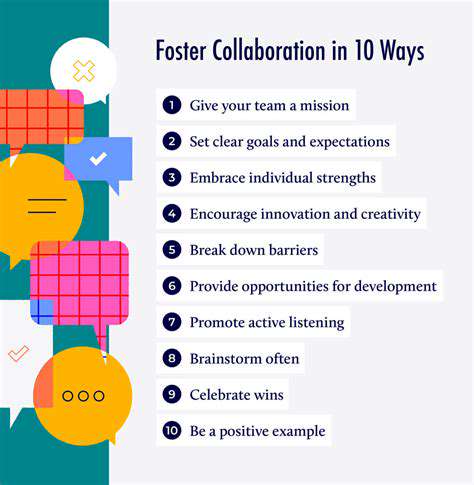Ethical Design: Avoiding Pitfalls in Gamified Learning
Considerations for Privacy and Data Security in Gamified Learning Platforms
User Data Handling and Anonymization
Gamified learning platforms collect a wealth of user data, ranging from demographics and learning styles to performance metrics and engagement patterns. Properly handling this data is crucial to maintaining user trust and avoiding potential privacy breaches. Robust anonymization procedures are essential to protect user identities and prevent the linkage of personal information to specific user accounts. This includes techniques like data masking, pseudonymization, and the use of secure data storage solutions. Furthermore, platforms should clearly articulate their data handling policies in a transparent and easily accessible manner, outlining what data is collected, how it's used, and with whom it might be shared.
Implementing strong data encryption protocols throughout the data lifecycle, from collection to storage and processing, is paramount. This ensures that sensitive information remains confidential, even in the event of a security breach. Regular security audits and vulnerability assessments are critical to proactively identify and address potential risks, mitigating the possibility of unauthorized access or data manipulation. Transparency about data security measures and their effectiveness should be communicated to users to foster trust and confidence.
Data Minimization and Purpose Limitation
Only collect the minimum amount of data necessary to achieve the intended learning objectives. Avoid collecting excessive or irrelevant data points. This principle of data minimization reduces the attack surface, making the platform less vulnerable to security breaches and minimizing the potential for misuse of personal information. Each data point collected should have a clear and defined purpose related to improving the learning experience, not for unrelated commercial purposes.
Data collected should be used solely for the stated purpose, such as analyzing learning patterns to personalize the learning experience or for providing feedback. Strict adherence to the defined purpose minimizes the risk of data misuse and ensures user trust. Platforms should establish clear guidelines and procedures to prevent the inappropriate use or disclosure of user data.
Security Measures and Compliance
Implementing robust security measures is essential to protect user data from unauthorized access, use, or disclosure. This includes employing strong passwords, multi-factor authentication, and regular security updates to address emerging threats. The platform should adhere to relevant data privacy regulations, such as GDPR, CCPA, and FERPA, depending on the target user base and location. Compliance ensures that the platform operates within legal boundaries and protects user rights.
Regular security assessments and penetration testing are vital to identify vulnerabilities and strengthen the platform's defenses. The platform should have a clear incident response plan to address potential security breaches promptly and effectively. This plan should outline procedures for containment, investigation, and recovery, minimizing the impact of any incident and restoring user trust.
Ethical Considerations and User Consent
Gamified learning platforms must prioritize user privacy and data security from the outset of design. Transparency and clear communication are key elements in fostering user trust. Users must be provided with comprehensive information about data collection practices, including what data is collected, how it's used, and how it's protected. Explicit and informed consent is crucial for data collection, ensuring that users understand and agree to the terms of data usage.
Platforms should provide users with control over their data, enabling them to access, rectify, or delete their information as needed. Furthermore, users should have the option to opt out of data collection or specific data uses. This empowers users and reinforces the ethical principles of data privacy and security. The platform's approach should be ethically sound, considering the potential impacts on users and society.

Read more about Ethical Design: Avoiding Pitfalls in Gamified Learning
Hot Recommendations
- The Gamified Parent Teacher Conference: Engaging Stakeholders
- Gamification in Education: Making Learning Irresistibly Fun
- The Future of School Libraries: AI for Personalized Recommendations
- EdTech and the Future of Creative Industries
- Empowering Student Choice: The Core of Personalized Learning
- Building Community in a Hybrid Learning Setting
- VR for Special Education: Tailored Immersive Experiences
- Measuring the True Value of EdTech: Beyond Adoption Rates
- Addressing Digital Divide in AI Educational Access
- Preparing the Workforce for AI Integration in Their Careers











